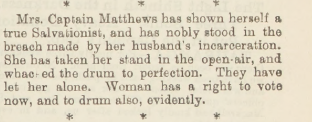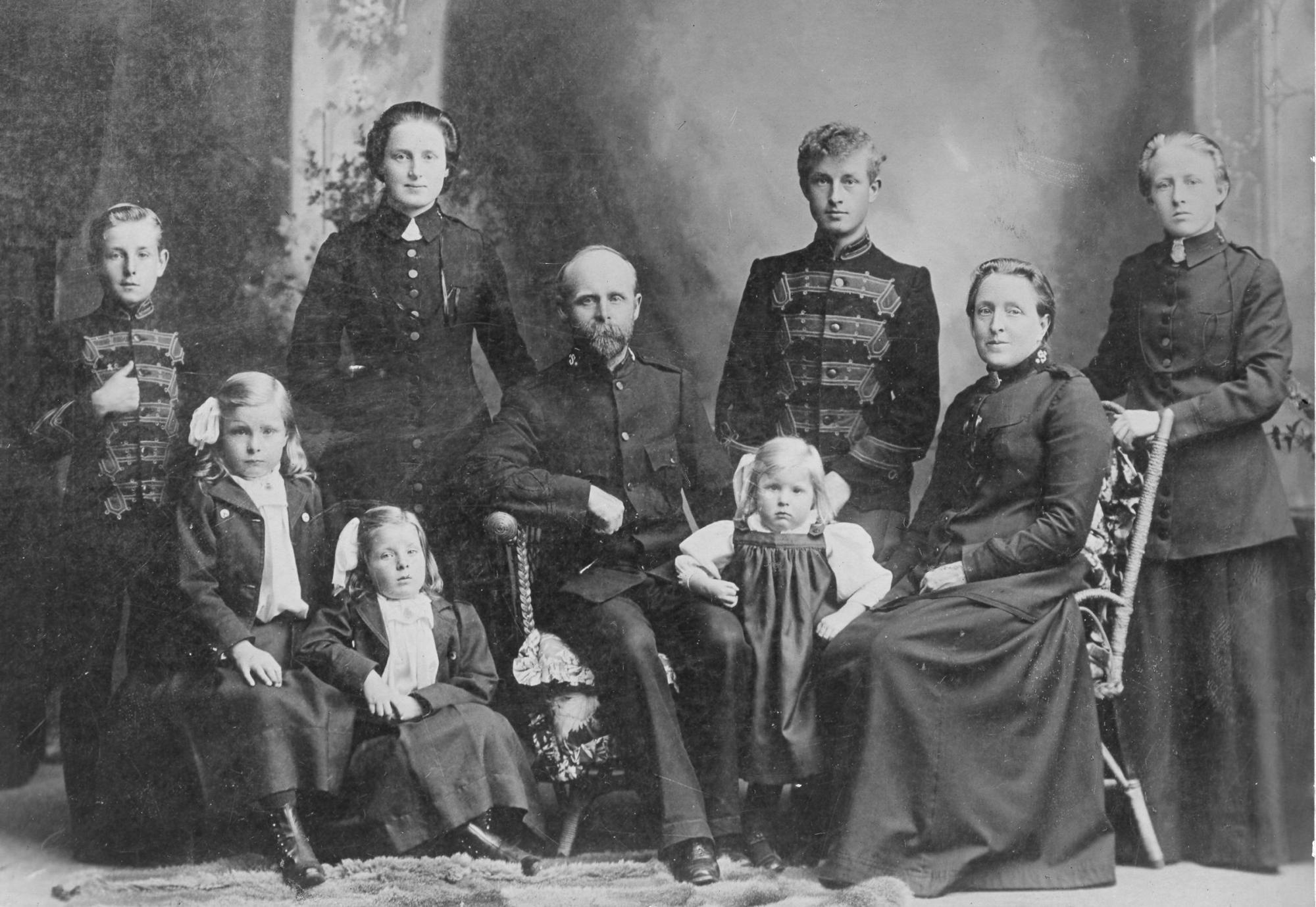You are here
Woman Has a Right to Vote Now and to Drum
Woman Has a Right to Vote Now and to Drum
From the beginning of The Salvation Army, its founders, Catherine and William Booth established equal rights for men and women in ministry.
An example of this was documented in The War Cry, 14 October 1893 Captains Catherine (nee McDougall) and Frank Matthews, were the officers in Milton, when he with several others were imprisoned in Dunedin, for disturbing Milton’s peace with openair meetings. Catherine believed in the right to continue this practice and the 1893 report reads how she, “...whacked the drum to perfection. Woman has a right to vote now, and to drum also, evidently ”.
Shortly after The Women’s Christian Temperance Union arrived in Aotearoa New Zealand in 1886, The Salvation Army formed an association with them. Well known for advocating a lifestyle without alcohol it also promoted suffrage. The Salvation Army’s publication The War Cry, began to feature articles relating to the votes for women campaign.
Rosemarie Smith, in The Ladies are at it Again! Gore Debates the Women’s Franchise (1993), writes on page 30, of a well advertised meeting held at the Gore Town Hall, on 21 June 1892.
The Southern Standard reported that the meeting was chaired by Mrs Marion Hatton, president of the Dunedin Women’s Franchise League. The audience were addressed by visiting women speakers and a number of Gore women proposed motions, including Captain Beatrice Dixon. She with her husband Ernest were the local Corps officers. The local women were described as, “determined, but nervous, speakers” and Mrs Dixon was reported as being the only speaker not to use notes.
Bea trice Dixon was known for her clear singing voice and the story of Beatrice (Beattie) and Ernest is told in From Maoriland to Wattleland, by Major Adelaide Ah Kow (1930). In this book their love story and journey as Salvation Army officers in New Zealand and Australia (1889-1914) is chronicled. Beatrice Dixon was of the thousands who supported women’s suffrage in Aotearoa New Zealand.
trice Dixon was known for her clear singing voice and the story of Beatrice (Beattie) and Ernest is told in From Maoriland to Wattleland, by Major Adelaide Ah Kow (1930). In this book their love story and journey as Salvation Army officers in New Zealand and Australia (1889-1914) is chronicled. Beatrice Dixon was of the thousands who supported women’s suffrage in Aotearoa New Zealand.
In 1891, the first ever Female Suffrage Bill was presented to parliament with a petition of 10,085 signatures. On 19 September 1893, 130 years ago, the Governor, Lord Glasgow signed the new act into law and Aotearoa New Zealand became the world’s first self-governing country, in which women had the right to vote.
